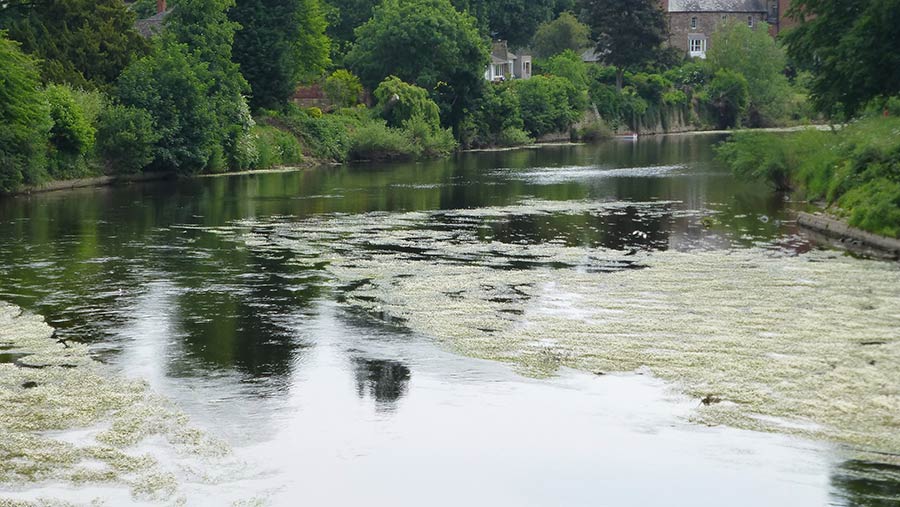Editor’s View: Industry needs to tackle water issues head on
 © Phil Wilson
© Phil Wilson How should the farming community respond to this week’s news that law firm Leigh Day could bring a multimillion pound legal claim against Avara Foods over its alleged role in polluting the River Wye?
It’s the latest in an uptick in the use of the courts to decide whether the laws that protect the environment are being enforced adequately.
See also: Law firm to seek compensation for River Wye pollution
Leigh Day, a well-known operator in this sphere, is seeking to sign up residents of the Wye catchment and get them compensation (minus a 30% fee) for the historic impact that phosphate pollution in the river has had on the residents’ lives and livelihoods.
It has singled out chicken firm Avara, which puts poultry on the plate of one in four households every week, saying it had a historic role in contributing to the pollution in the river.
The outcome of the case is likely to rest on whether Avara knew that its actions would pollute the river and whether it is principally to blame for the overall environmental damage.
This is where the broader debate over water pollution has seemingly been stuck for some time – debate over who is most to blame and how it should be put right.
What all sides of this debate are lacking – and what may prove critical in court – is sufficient good-quality data.
As The Rivers Trust notes, it can’t even be said with certainty yet whether overall river water quality (nationwide) is improving or declining, as not all storm outflows will be monitored until the end of this year.
Farmers, feeling that they already bear a disproportionate amount of blame for such ills, are keen to point the finger at water companies.
This is natural, particularly as their scale dwarfs that of individual farming business, meaning their ability to pollute, remedy it and prevent it in future all appear much greater.
It is also understandable that some will want to downplay our industry’s impact for fear of punitive future legislation that would further increase production costs and make us even less competitive against imports.
Yet the risk is that reluctance to be seen to have an appetite for continuously reducing pollution will make us look like we are running from our problems until we get caught – as the water companies are finding.
But that is becoming an outmoded view of farming.
Avara’s own Sustainable Poultry Roadmap, as well as the efforts of cross-industry working groups such as the Wye Catchment Partnership, are showing what can be done with a positive attitude and big resources.
The folly of Leigh Day is that no one segment of the supply chain should be singled out to pay for whatever emerges as farming’s fair share of the blame.
It will only be remedied by the supply chain working together. There’s a long way to go but we’re heading in the right direction.

